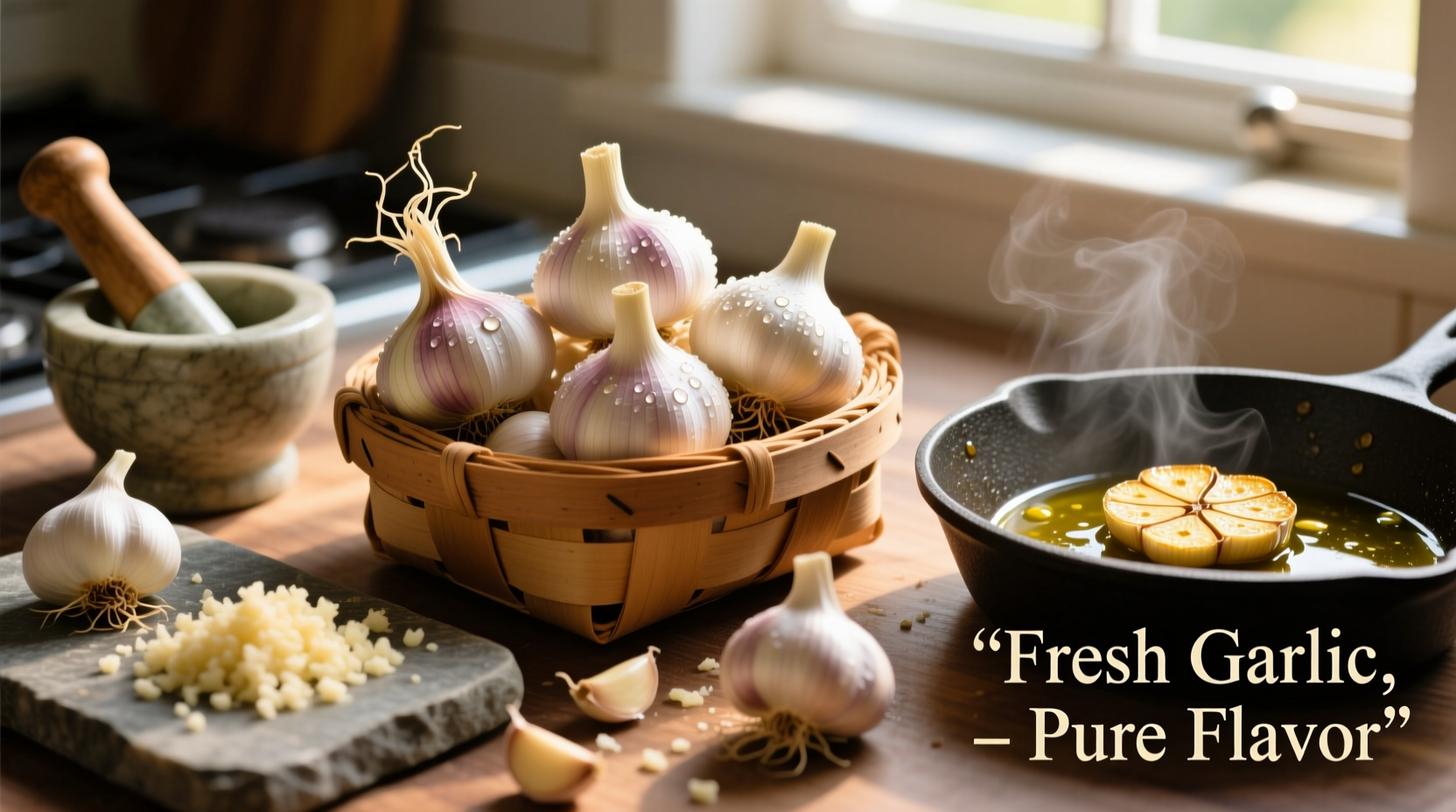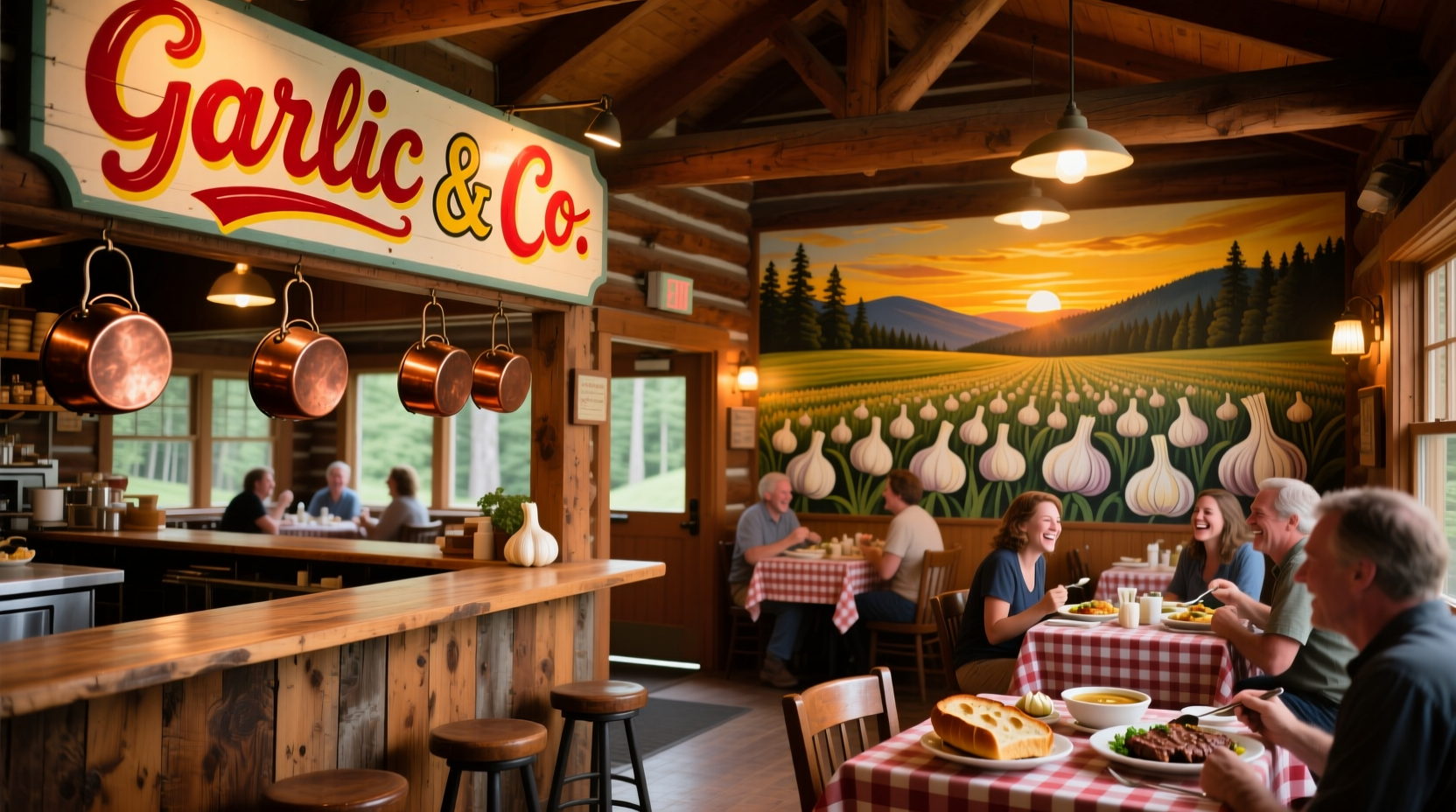When searching for “garlic restaurant Poconos,” visitors typically seek standout dining experiences where garlic isn't just an ingredient but a celebrated culinary element. The Pocono Mountains region offers several noteworthy options where chefs showcase creative garlic applications across regional American, Italian, and Pennsylvania Dutch-inspired menus. This guide identifies the top establishments featuring exceptional garlic preparations, explains what makes their approach distinctive, and provides practical planning insights for your visit.
Understanding the Poconos' Garlic Dining Landscape
Unlike regions with a single signature “garlic restaurant,” the Poconos features multiple establishments that have developed reputations for exceptional garlic-centric dishes. This culinary pattern reflects Pennsylvania's agricultural heritage, where garlic has been cultivated since the 18th century by German immigrant communities. The region's cool climate produces garlic with distinctive flavor characteristics—milder than California varieties but more complex than many commercial imports.
| Garlic Preparation Method | Flavor Profile | Common Restaurant Applications |
|---|---|---|
| Slow-roasted whole bulbs | Sweet, caramelized, mellow | Bread accompaniments, mashed potatoes, steak toppings |
| Fresh minced (raw) | Sharp, pungent, vibrant | Sauces, salad dressings, finishing touches |
| Garlic confit | Rich, buttery, subtle | Pasta dishes, vegetable preparations, compound butters |
| Smoked garlic | Earthy, complex, nuanced | BBQ sauces, soups, specialty oils |
Top Poconos Establishments Featuring Exceptional Garlic Dishes
The Pocono Garlic Experience at The Inn at Pocono Manor
Located in the historic 1902 inn, The Dining Room has developed seasonal menus featuring locally sourced garlic from nearby farms. Their signature “Pocono Garlic Feast” includes roasted garlic hummus with house-baked flatbread, garlic-infused mushroom risotto, and their renowned 40-clove garlic chicken—a milder preparation where slow-roasted garlic bulbs melt into a rich sauce. The restaurant sources its garlic from Lehman's Garlic Farm in nearby Stroudsburg, which has operated since 1987 and supplies several regional establishments.
Italian Garlic Specialties at Trattoria Toscana
This family-owned restaurant in East Stroudsburg features traditional Italian preparations with Pennsylvania-grown garlic. Their menu highlights include “Aglio e Olio” prepared with eight varieties of fresh garlic, roasted garlic bread with whipped ricotta, and garlic-scented grilled octopus. Chef Marco Rossi explains that they rotate garlic varieties seasonally—using hardneck garlic in spring for its floral notes and storage varieties in winter for deeper flavor.
Pennsylvania Dutch Garlic Traditions at The Log Cabin Restaurant
Operating since 1945, this landmark restaurant in Tobyhanna preserves regional culinary heritage with garlic preparations rooted in Pennsylvania Dutch traditions. Their famous “Garlic Drop Noodles” feature hand-cut noodles sautéed with fresh garlic and rendered bacon fat—a dish that reflects the region's German immigrant cooking techniques. The restaurant's commitment to historical accuracy comes from consulting the Historical Society of Pennsylvania's culinary archives, which document how early settlers used wild garlic varieties in their cooking.
What Makes Professional Garlic Preparation Special
Professional kitchens in the Poconos approach garlic with techniques that transform its flavor profile significantly from home cooking. As Antonio Rodriguez, chef and spice specialist, explains: “The difference between good and exceptional garlic preparation comes down to timing, temperature, and variety selection. Many restaurants use multiple garlic varieties throughout the year, adjusting preparations based on whether they're working with fresh spring garlic (milder, almost leek-like) or cured storage varieties (more pungent).”
Key professional techniques include:
- Temperature control - Cooking garlic below 158°F preserves its beneficial compounds while higher temperatures create different flavor compounds
- Varietal selection - Using specific garlic types for specific applications (e.g., porcelain garlic for roasting, rocambole for raw applications)
- Timing precision - Adding garlic at exact moments in cooking processes to achieve desired flavor intensity

Planning Your Garlic-Focused Dining Experience
For the best experience when seeking garlic-forward dining in the Poconos, consider these practical tips:
Seasonal Timing Matters
Visit between June and August for “fresh garlic” season when restaurants feature young, milder garlic with edible scapes. Fall and winter menus typically showcase cured garlic varieties with more intense flavor. Many establishments feature special “garlic festivals” in late summer when local harvests come in.
Communicate Your Preferences
Don't hesitate to discuss your garlic preferences with servers. Most establishments can adjust garlic intensity upon request—whether you want a more pronounced garlic experience or a subtler incorporation. As one chef noted, “We regularly prepare dishes with double the garlic when requested, or can minimize it significantly while maintaining flavor integrity.”
Pairing Considerations
Garlic-rich meals pair beautifully with regional Pocono beverages. Local craft breweries often recommend their amber ales with garlic dishes, while wineries like Ventosa Vineyards suggest their dry Rieslings to complement garlic preparations. For non-alcoholic options, many restaurants offer house-made ginger beers that cut through garlic's richness.
Addressing Common Garlic Dining Concerns
Many visitors have questions about garlic-focused dining experiences. Research from the USDA Agricultural Research Service helps address common concerns:
- Garlic breath intensity - Properly prepared garlic (especially roasted or confit) produces significantly less odor than raw applications. Restaurants using professional techniques often minimize this concern.
- Digestive sensitivity - Cooking methods dramatically reduce garlic's potential digestive impact. Those with sensitivities often tolerate roasted or confit garlic better than raw applications.
- Flavor balance - Professional chefs balance garlic with acidity and sweetness to create complex flavor profiles rather than overwhelming pungency.











 浙公网安备
33010002000092号
浙公网安备
33010002000092号 浙B2-20120091-4
浙B2-20120091-4